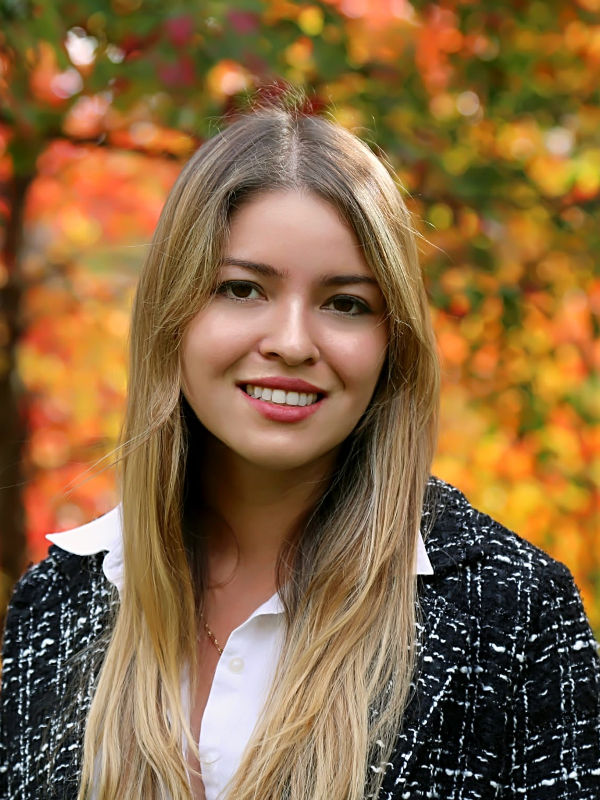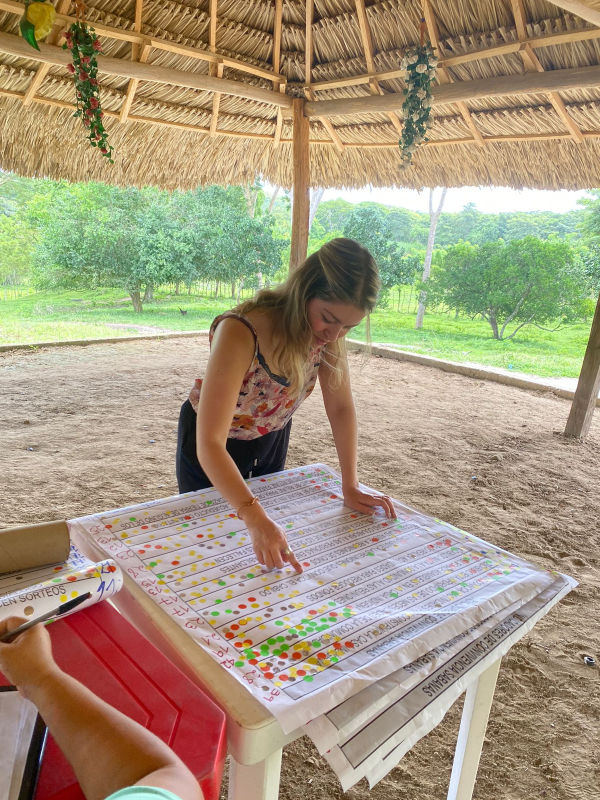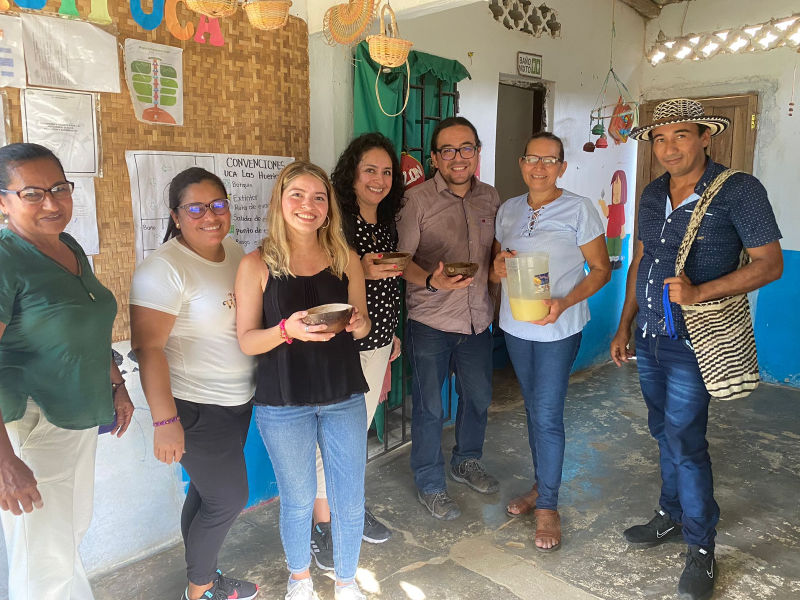
Originally from Chile, Maria Fernanda Cabezas, MA COEX’23, experienced the remnants of a brutal military dictatorship that left an indelible mark on the country’s history. Having studied political science at the Catholic University of Chile, she wondered: “Why do people start to fight? Why do people decide to engage in conflict? What can increase or decrease levels of cooperation?”
Supportive Professors Along the Way
Cabezas’ journey to and throughout Heller can be characterized by the support of professors who helped her to explore these questions.
The first was Eduardo Undurraga, PhD’14, a professor from her university in Chile and a Heller alum. When first looking at graduate programs, Cabezas came across Heller’s MPP, but Undurruga recommended COEX, for it seemed more suited to Cabezas’ interest in violence dynamics.
While researching the COEX program, Cabezas found the work of Associate Professor Pamina Firchow — who would later become her most impactful professor at Heller. Cabezas was drawn to Firchow’s focus on intrastate conflicts, “everyday peace and everyday violence”.

Because of Heller: A Rich NGO Opportunity
Firchow is the Founding Executive Director of Everyday Peace Indicators, an NGO and research center that would later host Cabezas as an intern for a semester abroad in Colombia. There, Cabezas traveled to rural communities, interacting with Indigenous, Afro-Colombian and farmer populations. Through focus groups, she strived to understand rural perspectives on the Colombian armed conflict and how those perspectives differed from top-down narratives.
“I really had this opportunity because of Heller,” she says. “When I talk to my Colombian friends, they cannot believe that I was able to go to those places. Even if they are from there, they cannot enter those places. It’s a closed off community; you need to go with an NGO. I had a very rich experience.”
Upon returning to campus, Cabezas was awarded a Maurice J. and Fay B. Karpf and Ari Hanh Peace Award — which provides funding for Brandeis students to complete their own peace, conflict resolution, and coexistence projects. Cabezas used this opportunity to take what she learned in Colombia and apply the methodologies to the context of her home country and alma mater. She developed focus groups at the Catholic University of Chile to identify signs of memory and transitional justice in the aftermath of the dictatorship.

Meaningful Mentorship
Cabezas then landed a United Nations (UN) internship with the help of Research Scientist Peter Dixon. She examined climate-related security risks of the UN Office of Internal Oversight Services and evaluated the Rule of Law in South Sudan. Separately, Dixon worked with her to help her understand what she truly wanted for her career after Heller.
Peacebuilding In Practice
She also benefited from Adjunct Lecturer Nanako Tamaru’s teachings, which gave her an overview of the behind-the-scenes operations of a peace project. She found that the practical classes of the COEX program prepared her to produce budgets, detail the scope of work, fill out IRB approvals, and so forth.
Today, Cabezas is the Operations Manager at Everyday Peace Indicators. She creates budgets, negotiates with donors, and practices adaptability and decision-making when projects need to be adjusted. She also works with research teams around the globe — in California, in Bosnia, in Sri Lanka, and of course, in Colombia, where it all started for her.
A New View, A Deeper Understanding
Cabezas maintains that she left Heller with a more nuanced worldview: “One of my biggest takeaways is the multiculturalism and cosmopolitan vision. I think I am a different person now, whether I stay in the U.S. or come back to my country. All the stories from my classmates will always be with me. People who go to Heller have big stories behind them.”
“Peacebuilding also gave me a different way to think about conflict. Before, I used to just analyze conflict for understanding. Now, I think about root causes, how we can approach them to improve living conditions, and how we can take into consideration people that don’t agree with our perspectives. Heller gave me a new view, a deeper understanding.”
